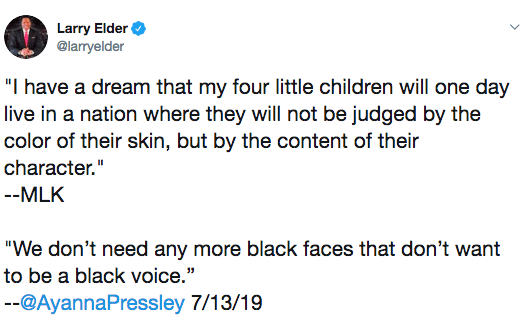#JOURNALISM: A Poster Boy for the Long-Sentenced, Non-Violent Drug Offender? “The government’s evidence at trial showed that from the 1970’s until his arrest in late 1988, Underwood supervised and controlled an extensive and extremely violent narcotics trafficking operation involving a number of murders and conspiracies to murder, a highly organized network for the street-level distribution of heroin and the importation of large quantities of heroin from Europe to the United States. The government presented the testimony of more than 50 witnesses, including a number of former members of Underwood’s street-level distribution organization, and introduced more than 250 exhibits.”
Plus:
So let’s compare what we know (and NBC could have known with minimal effort) with Ms. Caldwell’s description of the case: ” a nonviolent drug-related crime … his first felony ….”
“Nonviolent”? The racketeering and continuing criminal enterprise crimes are not inherently violent or nonviolent. They could be either, depending on the predicate acts. The court of appeals says the operation was “extremely violent.” False.
“Drug-related”? Yes, but so what? His drug offenses were accompanied by violent offenses. Calling the convictions “drug-related” in conjunction with the false “nonviolent” gives the reader a very wrong impression. Literally true but misleading in context.
“A … crime”? Singular. He was convicted of multiple crimes. False.
“His first felony”? The singular again is false. “First felon[ies]” would be literally true if it referred to his first felony convictions and completely false if it referred to the first felonies he committed. The predicate acts establish a long string of felonies. Ambiguous, with the false meaning being the one the viewer is most likely to take.
“But in the middle of the tough-on-crime era, the judge showed no leniency”? Given the judge’s finding of fact that Underwood’s continuing crimes extended past the Guideline’s effective date, the life sentence was mandatory under the then-binding Guidelines. The implication that the judge had discretion under the law but chose not to use it because of the “tough-on-crime” zeitgeist is false.
To call this shoddy journalism would be an understatement. What will NBC and its affiliate MSNBC do? Issue a retraction and apology? Pull the segment off the website? Fire the reporter? All of the above? None of the above?
How did a story like this ever get through? Once upon a time editors were supposed to catch sloppy work like this. Are there any Perry Whites left in American journalism? Now confirmation bias runs the show. If the story fits the approved narrative, fact-checking is optional.
Remember, Perry White was a fictional character, like Superman.



